The Office is celebrating its 15th anniversary this year, which means we’ve had plenty of time to dwell on the high turnover rate when it comes to branch managers on the comedy series. Running a tight ship, especially when that ship is manned by oddball characters and feuding personalities, is never easy, but it was particularly hard on this show. More than a handful of men and women tried to curb the lawlessness of this little paper company, and even less succeeded. So we’re looking back on the most effective management styles — from Michael Scott’s love of murder-mystery distractions to Dwight Schrute’s “Schrute Bucks” monetary system.
Here are the best branch managers on The Office.
11. DeAngelo Vickers
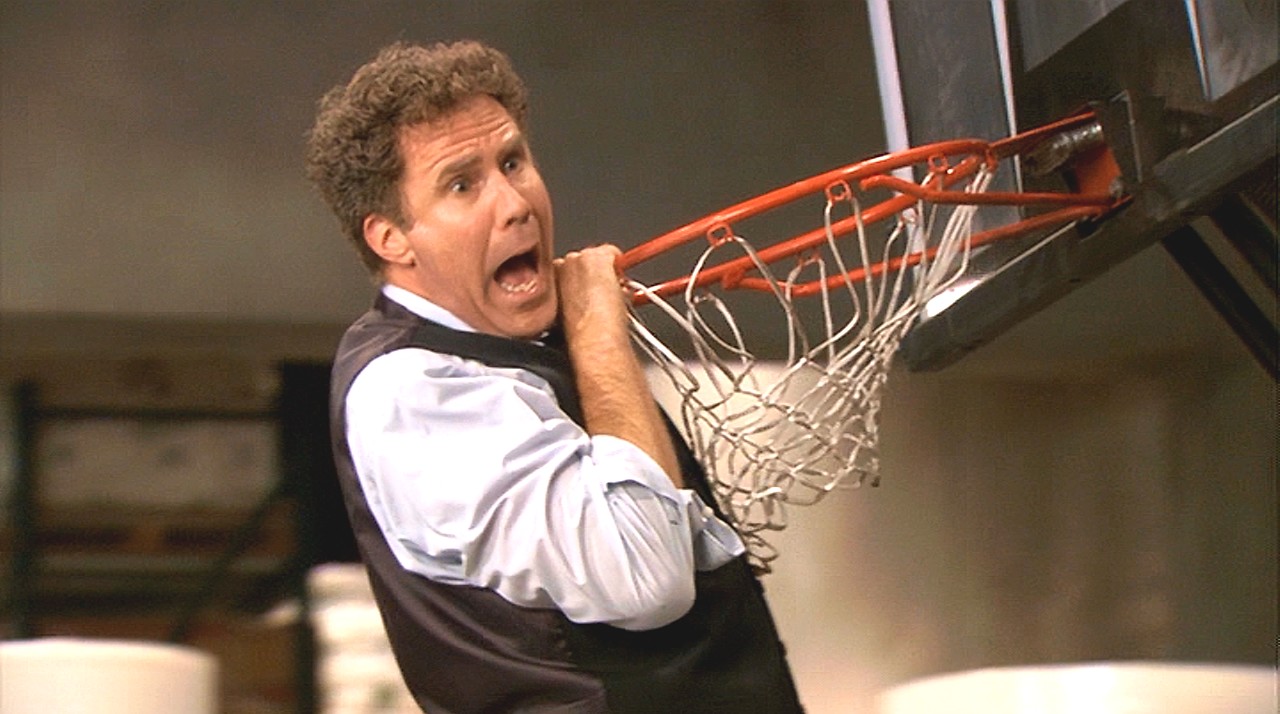
First impressions are tough to overcome, which is why a good rule of thumb is to never introduce yourself as a man who’s “just as comfortable at a ball game as at the opera.” You’ll never overcome being stereotyped as a complete douchecanoe after that. Unfortunately for the Scranton staff, Will Ferrell’s DeAngelo Jeremitrius Vickers lived up to that unpleasant label. He replaced Michael Scott in the show’s seventh season and though the two started as friends, DeAngelo quickly reverted to childish showmanship to impress his subordinates – think bringing in Scranton’s best Yelp-reviewed shaver and outfitting his new office in Southwestern décor. He was just as incompetent as Michael, prone to wasting time by putting on impromptu juggling performances with invisible balls, set to the tune of Evanescence’s “Bring Me to Life,” but he was also a sexist dirtbag who divided the office with his obvious favoritism and blatant disrespect for those not in his “inner circle.” His tenure (and life?) ended when Jim Halpert challenged him to a dunking contest and DeAngelo just couldn’t sink a basket from the free-throw line. Honestly, there are worse ways to go than the sweet, gentle caress of a good coma – and DeAngelo deserved them all.
10. Kevin Malone
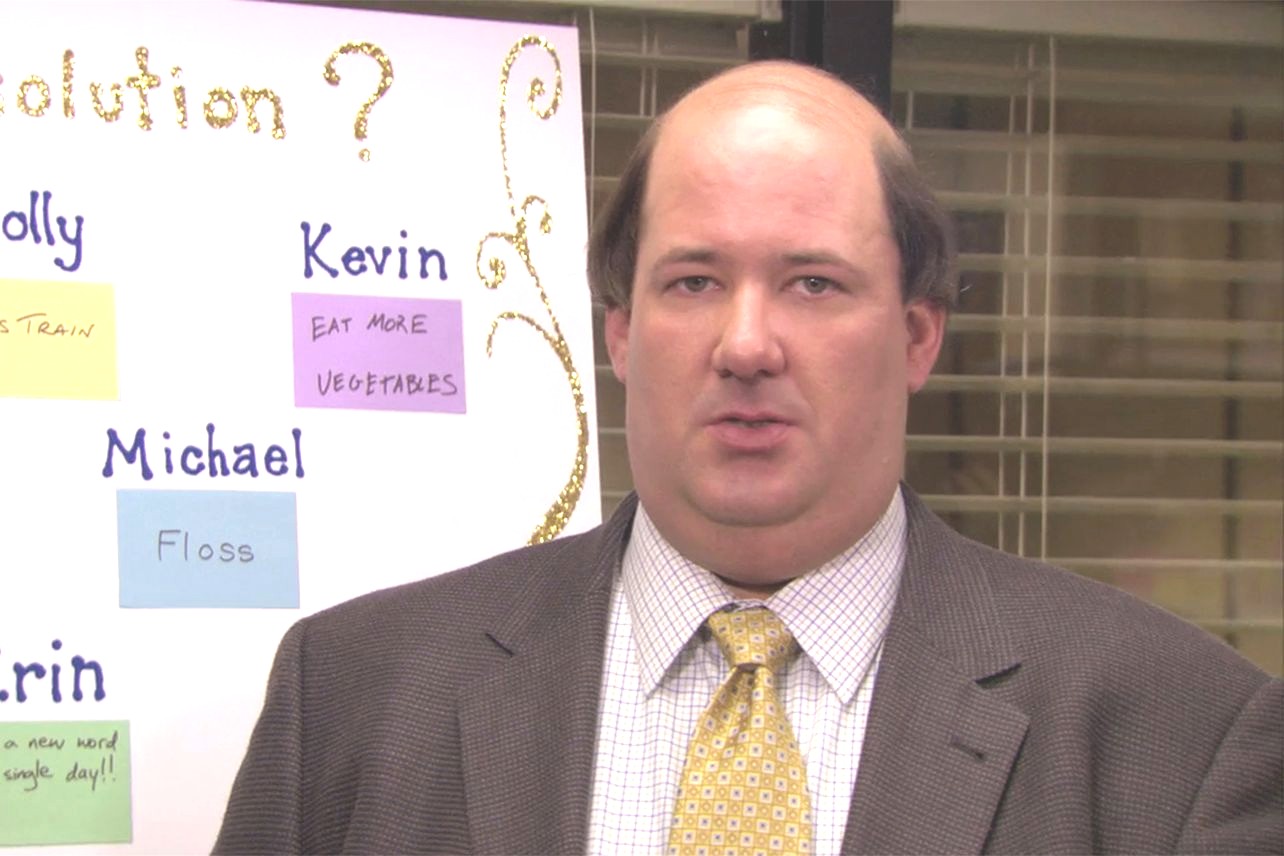
Kevin Malone was the lovable office idiot whose biggest victory might have been negotiating the relocation of a satellite parking lot season four. Despite holding his own with the “Five Families,” Kevin was never what you’d call management material — he once used a shredder to make a salad — so while he did win an hour sitting in the boss’s chair in season nine thanks to Pam Halpert’s chore wheel, it’s probably best his tenure was a short one.
9. Andy Bernard
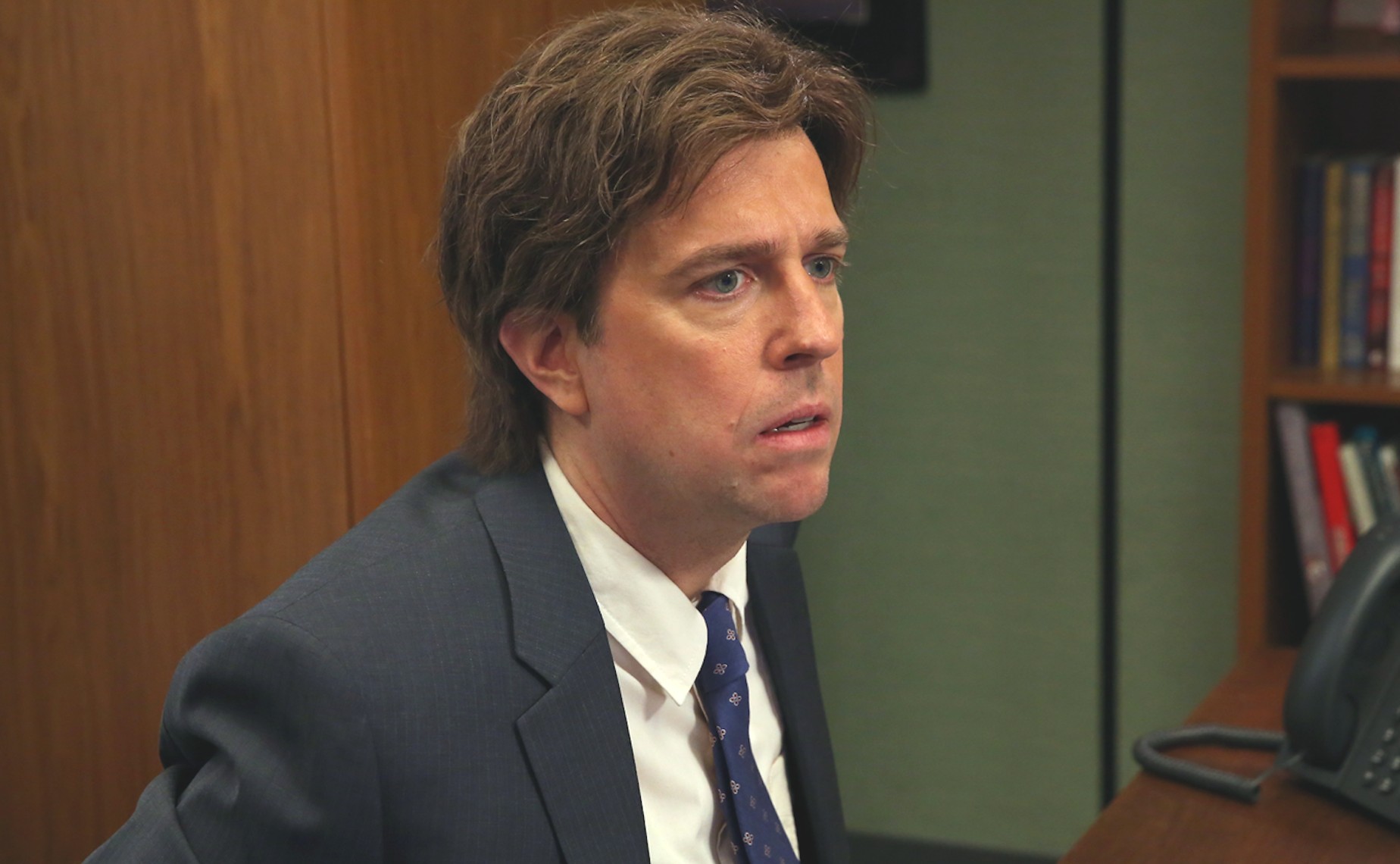
We’ll just say it, Andy Bernard was never the most likable guy on The Office. He was a brownnoser with a delusional belief in his acapella abilities and troubling anger management issue. Still, Ed Helms made his over-the-top antics hilariously charming for much of the show, but even he couldn’t convince us to get in line when Andy was made manager of the Scranton branch in the show’s later seasons. Not only did he quite literally hold the company hostage, convincing David Wallace to buy out Sabre from Robert California after he was denied the job, but once he did attain power he became an unbearable presence on the show. He was vindictive to his employees, negligent of his girlfriend, and he capped off his management run by sailing his family’s boat to the Bahamas, vanishing without a word for three months. We don’t know what’s worse: the fact that he took credit for Scranton’s increased productivity in his time away, or that he returned looking like some Burning Man reject, forcing us to endure impromptu Rake & Scrape. But the final nail in Andy’s management coffin was when he quit his job (after being downgraded to a salesman position) by defecating on Wallace’s car.
8. Charles Miner
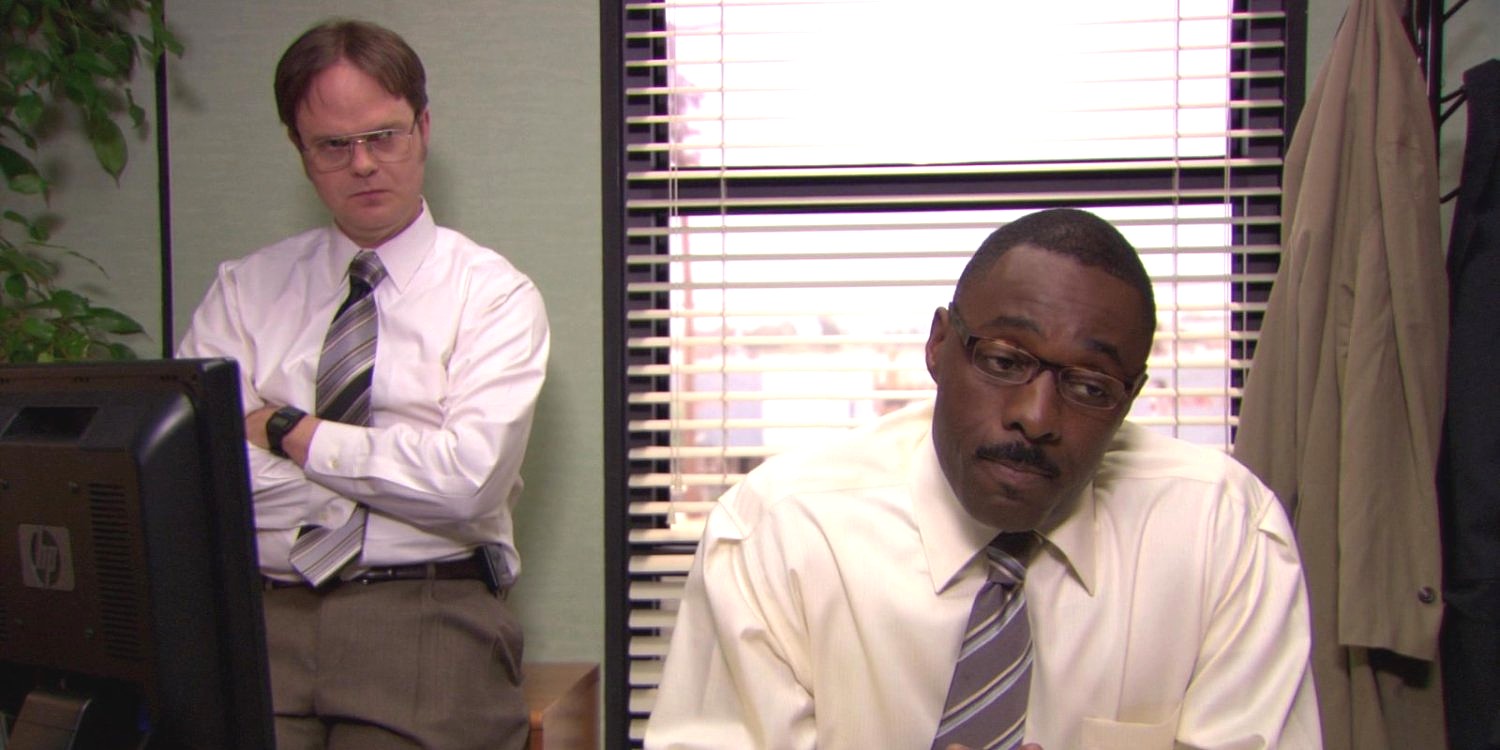
From the beginning, Charles Miner was a bit of a twat-waffle. His no-nonsense style and odd antagonism towards Jim made fans resent the character, despite the fact that he was played by the unfairly charismatic Idris Elba. Charles joined Dunder-Mifflin as the company’s new CFO with the task of cutting costs and being an all-around killjoy. Perhaps it’s because he came from Saticoy Steel and had no idea what it takes to sell paper, or perhaps it’s because he tossed Michael out of the office by using Hank, the security guard, as his own personal bouncer. Whatever the reason, Charles came across as a petty grouch, and we can’t say we’d ever want to have him as a boss.
7. Ed Truck
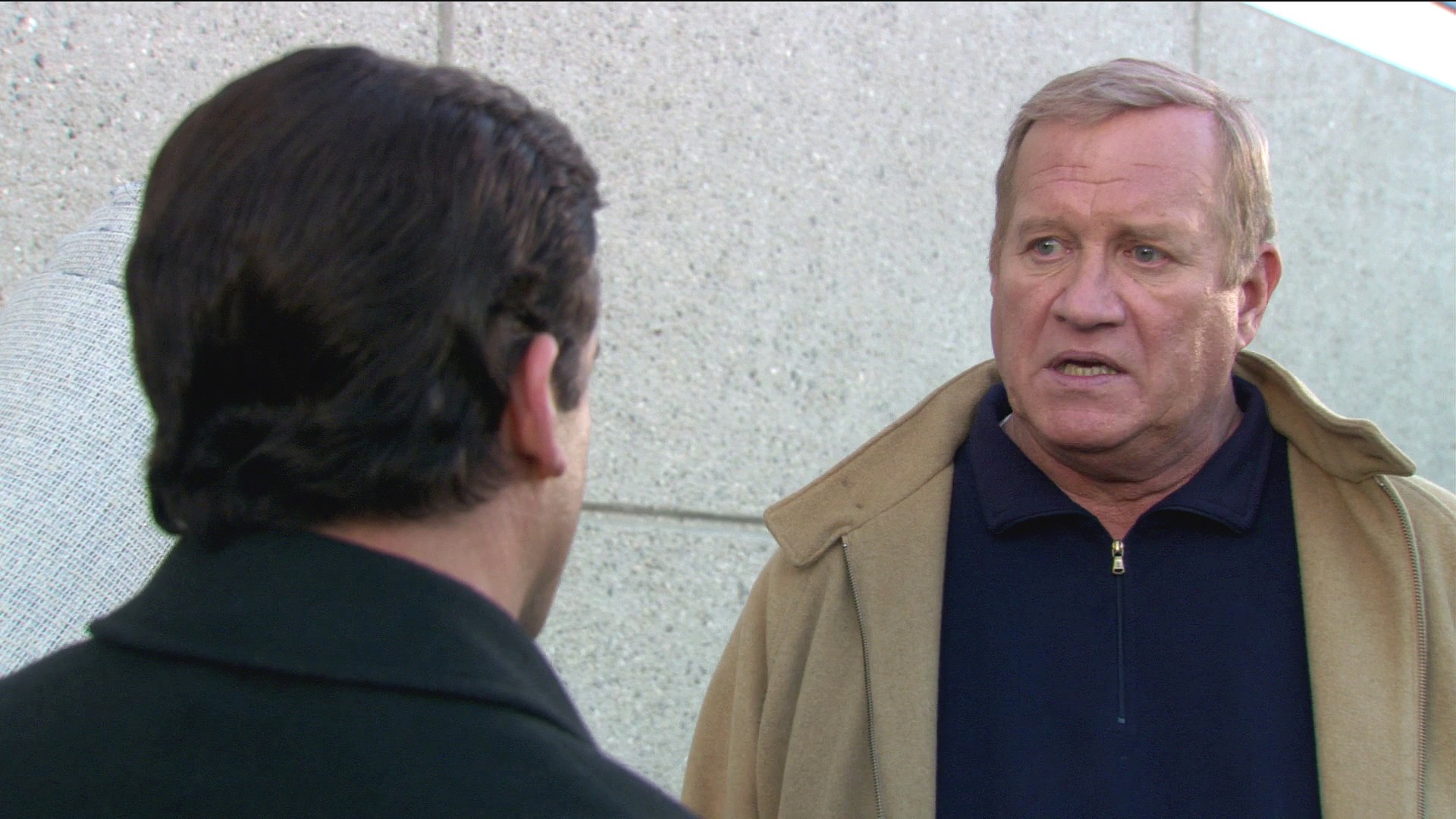
Ed Truck may have been a good boss. We’ll never really know. The only glimpses of his management style are the little tidbits fans were able to glean from Michael who claimed he was boring and that people would pretend to be working whenever he stepped foot outside of his office. Still, when Michael discovers someone in the office took a dump on his carpet, it’s Truck that he goes to for help and the advice the old man gives — “let your workers be your workers, your family be your family, your friends be your friends” — really isn’t that bad.
6. Creed Bratton
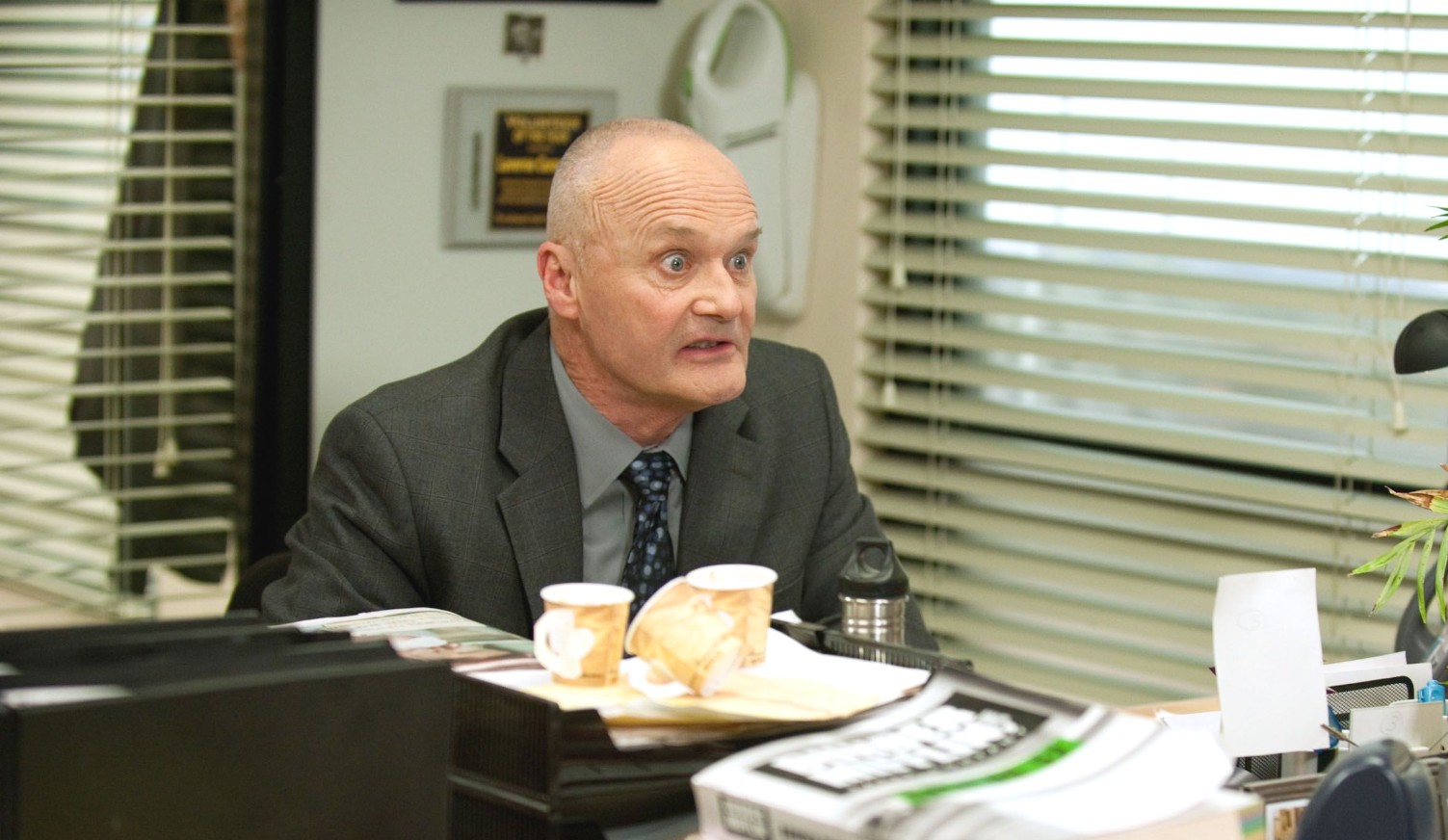
When Dwight Schrute fired a gun in the office while serving as acting manager, Sabre CEO Jo Bennett had no choice but to replace him — unloading antique pistols around your employees just isn’t a good look — but she made a mistake in choosing the branch’s senior-most member to put in the driver’s seat. Creed Bratton is perhaps the most mysteriously bizarre character on this show. He may have killed a man. He may be homeless. He may not even be the real Creed Bratton. But he most definitely didn’t make for a good leader on The Office. In fact, when Creed started calling clients telling them the company was going out of business to “save face,” it was Pam who had to distract him with Pictionary games before he cost the office their jobs. At least he was fairly easy to manage himself.
5. Nellie Bertram
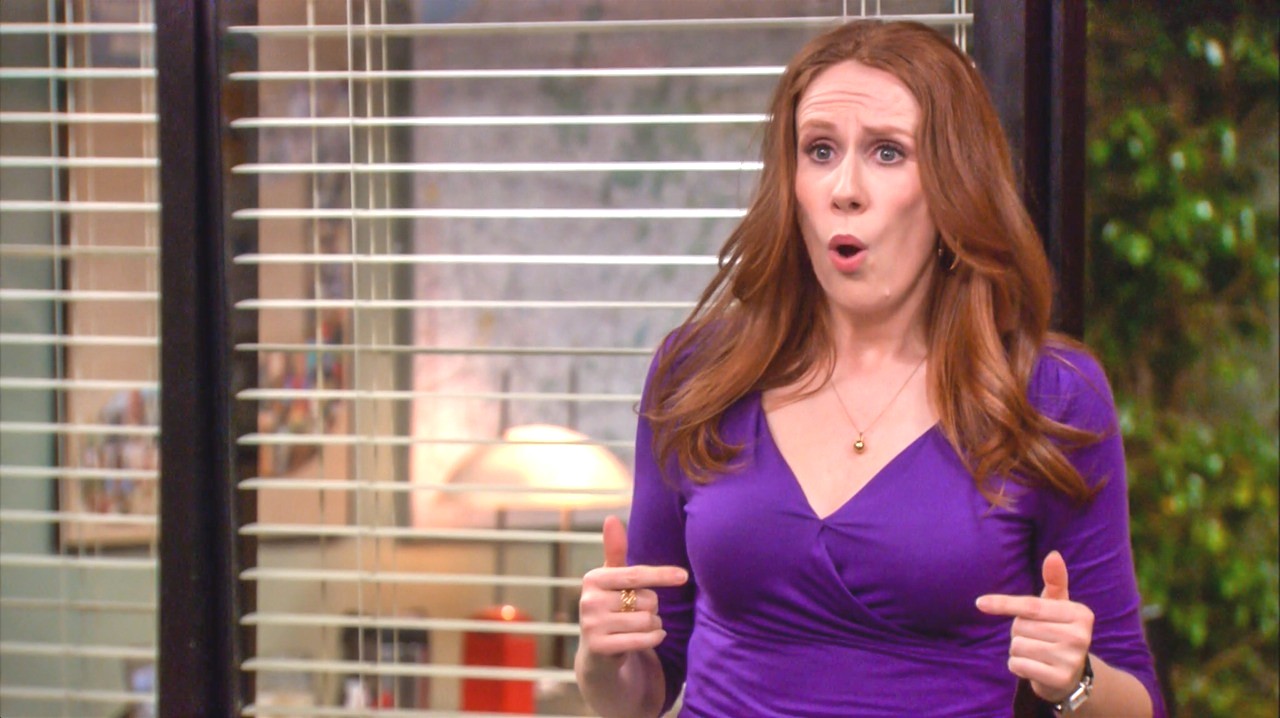
Nellie Bertram has one simple philosophy when it comes to business: “If the seat is open, the job is open.” That’s how she scored her short run as Scranton’s manager while Andy was road-tripping to Florida to win Erin back. Nellie had little education and few skills but she made up for her shortcomings with unbridled confidence and unchecked ambition. Even Robert California couldn’t find the balls to fire her. Some of her suggestions may have been ridiculous (like doing away with job titles and desks) but who would argue with company-wide raises and an on-site masseuse?
4. Robert California
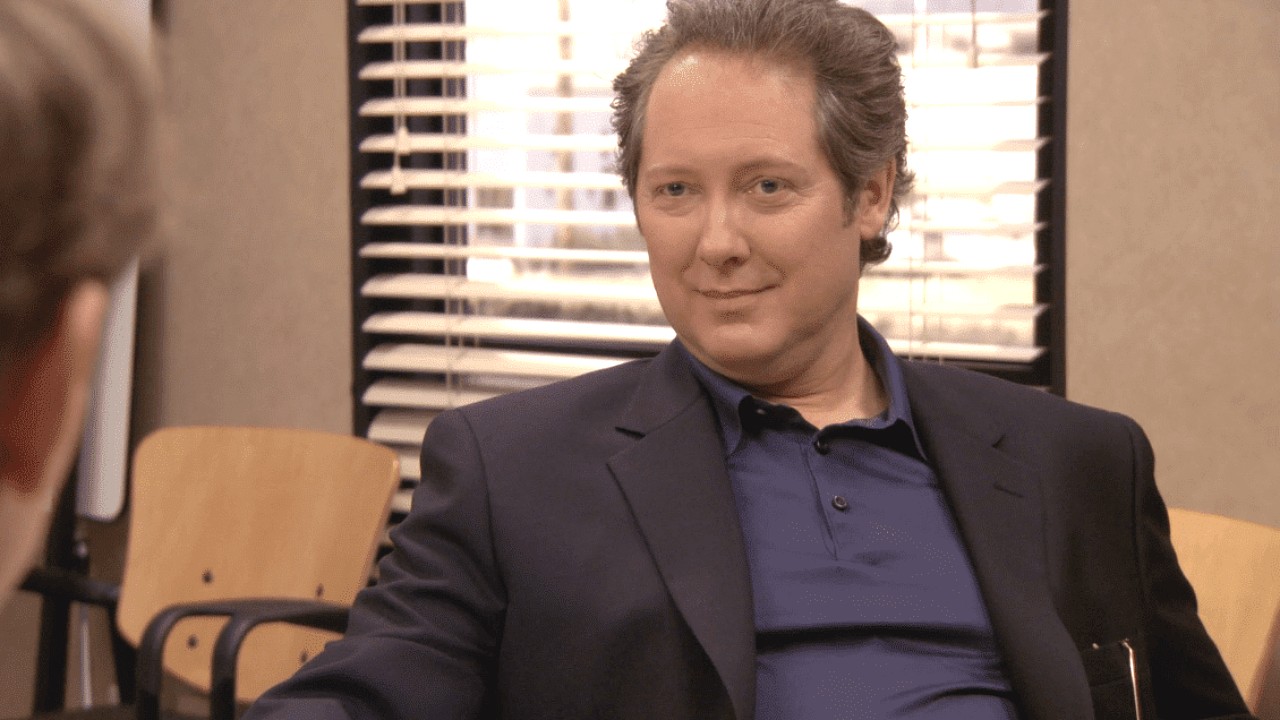
Was Robert California a secret genius, or just a creep? We may never know, but he was one of the more entertaining authoritarians to rule the office during later seasons. He first popped up in season seven, interviewing for the branch manager position at Sabre’s Dunder Mifflin division, impressing Jim, Toby Flenderson, and Gabe Lewis with long-winded analogies that related sales to sex. Robert’s profound confidence and baffling, intriguing aura helped win him the job but on his first day, he took one look around the office and traveled to Florida to persuade Jo Bennett to appoint him CEO of Sabre before selecting Andy Bernard as the office’s new manager. Anyone who can negotiate that kind of promotion on their first day is either a corporate mastermind or a con-artist.
3. Dwight Schrute
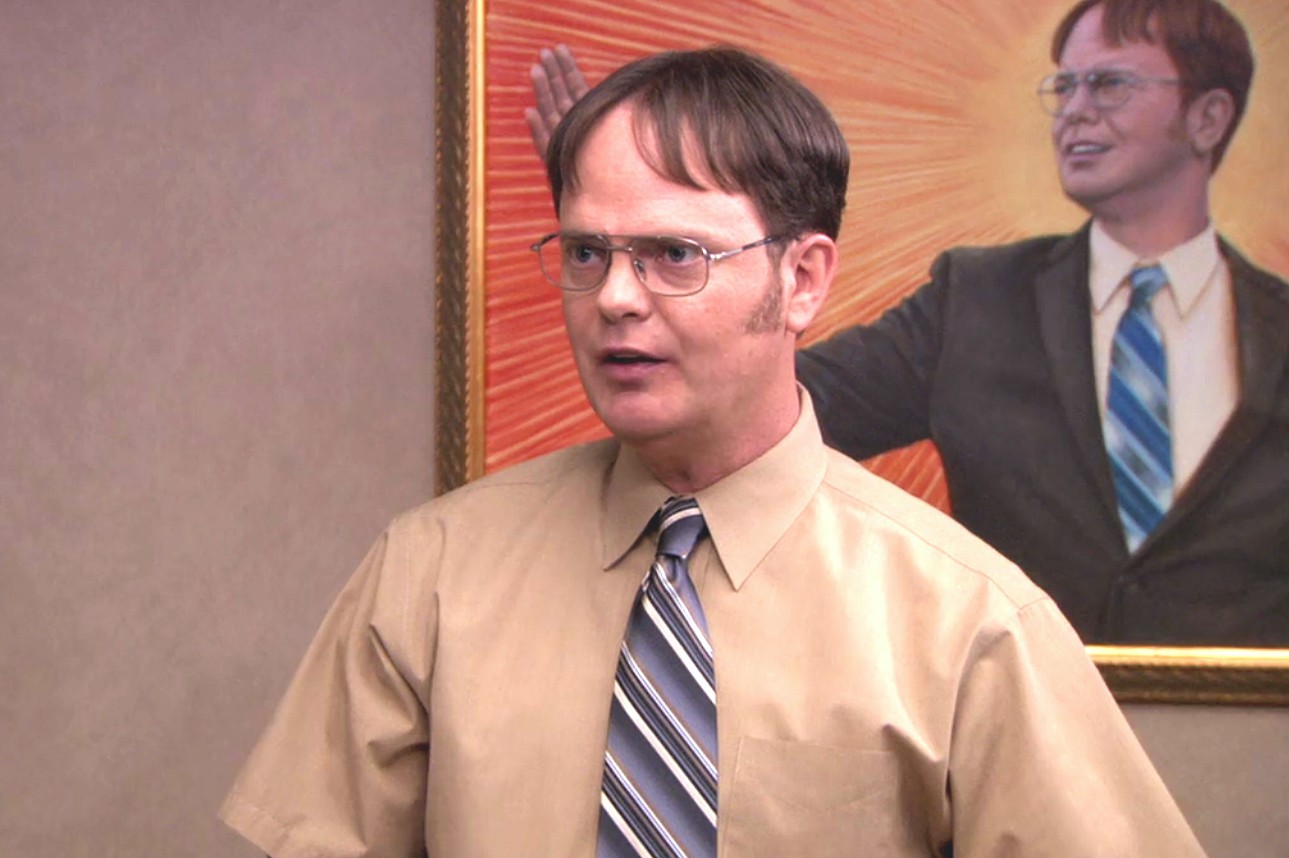
Sure, for much of the series’ run, Dwight Schrute was Michael Scott’s bumbling fascist manservant, a doomsday prepper with a hard-on for authority, a beet connoisseur, and a rather gullible mark for his prank-happy co-worker, Jim Halpert. But Dwight was also one of the hardest-working members of the Scranton branch, a loyal employee who sincerely cared about his clients, his boss, and his office. He got his first taste of power when Michael traveled to New York to interview for Jan Levinson’s old job. Despite the uncertainty of his reign, he immediately began making changes in Scranton, painting the walls of his new office black to intimidate his subordinates and enacting a new form of motivational currency called “Schrute Bucks.”
Later, when DeAngelo Vickers fell into a coma, Jo Bennett appointed Dwight as interim regional manager while the company searched for a replacement. The promise of a permanent place atop the office food chain ended up being too much for Dwight, who immediately began implementing some unpopular changes around the office. From Tolstoy-length passwords to mandatory recitations of the Pledge of Allegiance to installing archaic time punch clocks, Dwight’s “improvements” threw Scranton’s work environment into chaos. But the ousting moment came when Dwight, who had been concerned over an uprising led by Jim and a group he named “The Fist,” brought an antique pistol to the office to impress Jo and accidentally fired it indoors, causing temporary hearing loss for one of his employees. Let that be a lesson to us all: turning your workspace into a makeshift shooting rage will never leave your superiors thrilled.
In the end, Dwight resumes his tenure as regional manager when David Wallace buys back the company, and Andy heads off to pursue an acting career. He does marginally better, working with Jim to ensure no-nonsense is had and the office runs smoothly, although he does hold tryouts for Assistant to the Assistant to the Regional Manager before appointing himself as his own assistant… to himself.
2. Jim Halpert and Michael Scott

Jim and Michael made a fairly good team, leading the office through some turbulent times though they did get off to a rough start when Michael believed Jim was gunning for his job and trash-talked the guy to David Wallace. Jim’s plan was for Michael to be promoted and Jim to be the sole office manager, but after that misunderstanding, the two men were named co-managers which, as everyone knows, was bound to go well. Quick, name a country with two presidents.
They constantly fought over their differing management styles. Michael liked to hold useless, time-wasting meetings in the conference room, Jim preferred to have the employees actually be productive. When their first big-picture problem needed to be solved — the question of which employees would receive raises — they threw each other to the wolves, making a complete mess of choosing the best-performing workers and earning the ire of everyone. Still, Michael used the experience as a worthwhile teaching moment, getting Jim his own “Best Boss” coffee mug and bonding over their shared predicament.
There would be more bumps in the road for these two. Michael began dating Pam’s mother, Helene, putting Jim in a particularly tough spot, and they clashed over how to handle the news that Dunder Mifflin was going bankrupt — Michael wanted to play a murder-mystery game, Jim wanted to get back to work — but more often than not the office benefitted from their two different approaches. And while Jim always had the best of intentions, his solo attempts at leading his officemates usually didn’t end well. Remember that disastrous employee of the month debacle? As strange as it is to admit, Jim Halpert needed Michael Scott to teach him to lead, and Michael needed Jim to help curb his more questionable ideas. #NeverForgetTubeCity
1. Michael Scott
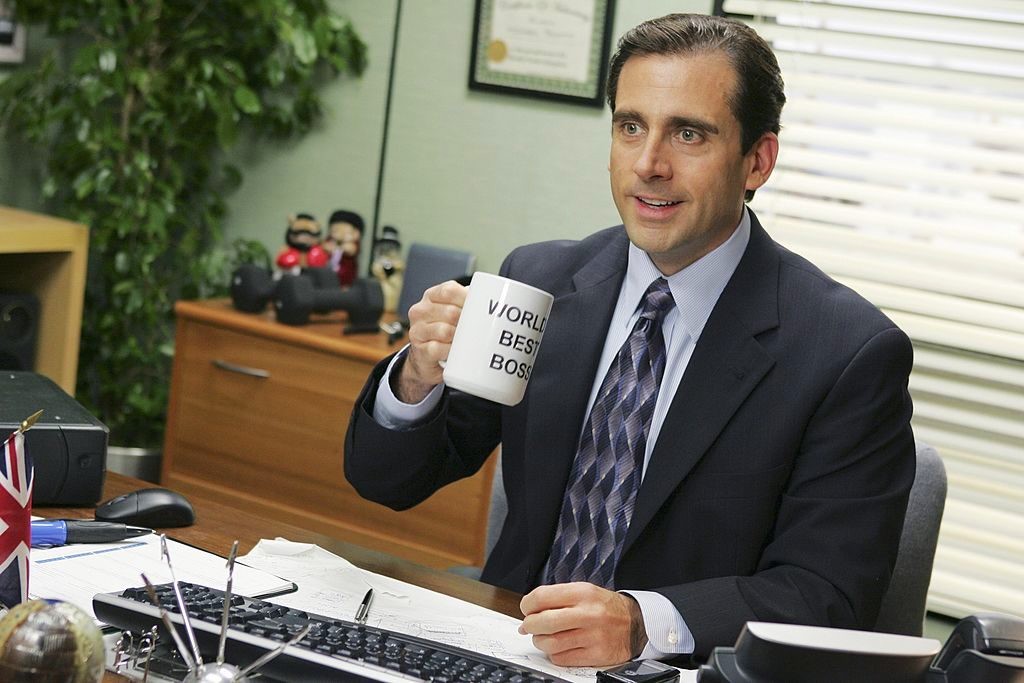
Michael Scott is many things: a devoted employee, a surprisingly competent salesman, an enthusiastic MC of the annual Dundie Awards, a lover of “that’s what she said” jokes. But he was also a terrific, if unconventional, branch manager. He genuinely cared about his employees, showing up for the big moments in their lives like Pam’s art show or Phyllis’ wedding. He was a continuous source of comedy in what normally would have been a rather dull setting. He planned fun outings for his crew, events like “Beach Day” and “Casino Night.” He encouraged a sense of fun and silliness that sometimes went a bit too far but hey, would you have preferred everyone just sell paper all day?
Michael had many flaws: he made inappropriate jokes, cringe-worthy speeches, and unwanted advances on female employees. He held pointless meetings, enacted truly idiotic management techniques, and the most he ever worked was when he staged a murder-mystery party to distract his employees from bad news about the company. He was also overly antagonistic to a certain employee, who could’ve (and probably should’ve) gotten him fired. But he knew the people who worked for him, their strengths and weaknesses, and he encouraged their growth, sometimes without even knowing it. Oh, and he saved Meredith Palmer from death by rabies, so he’s basically a hero.







